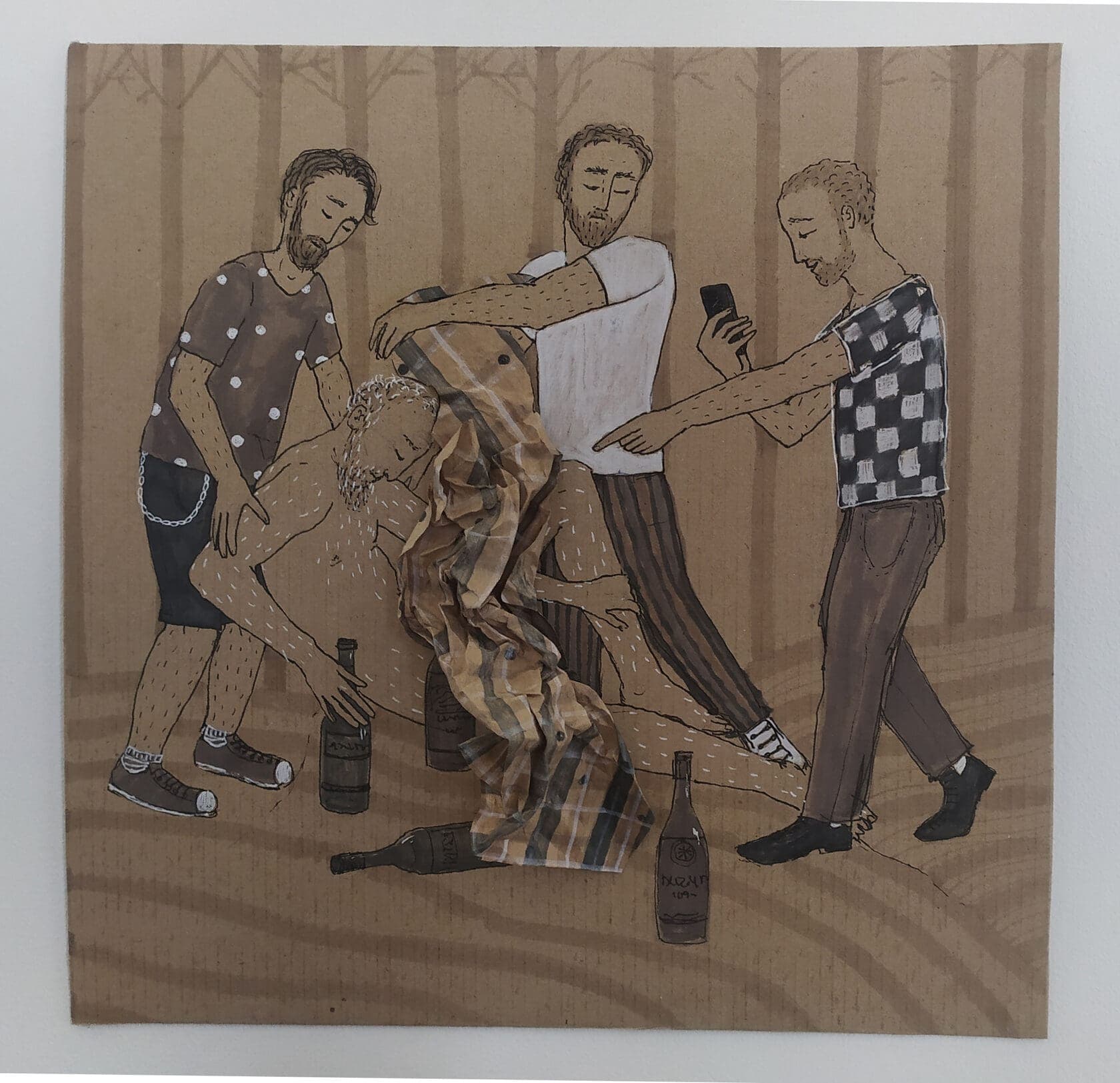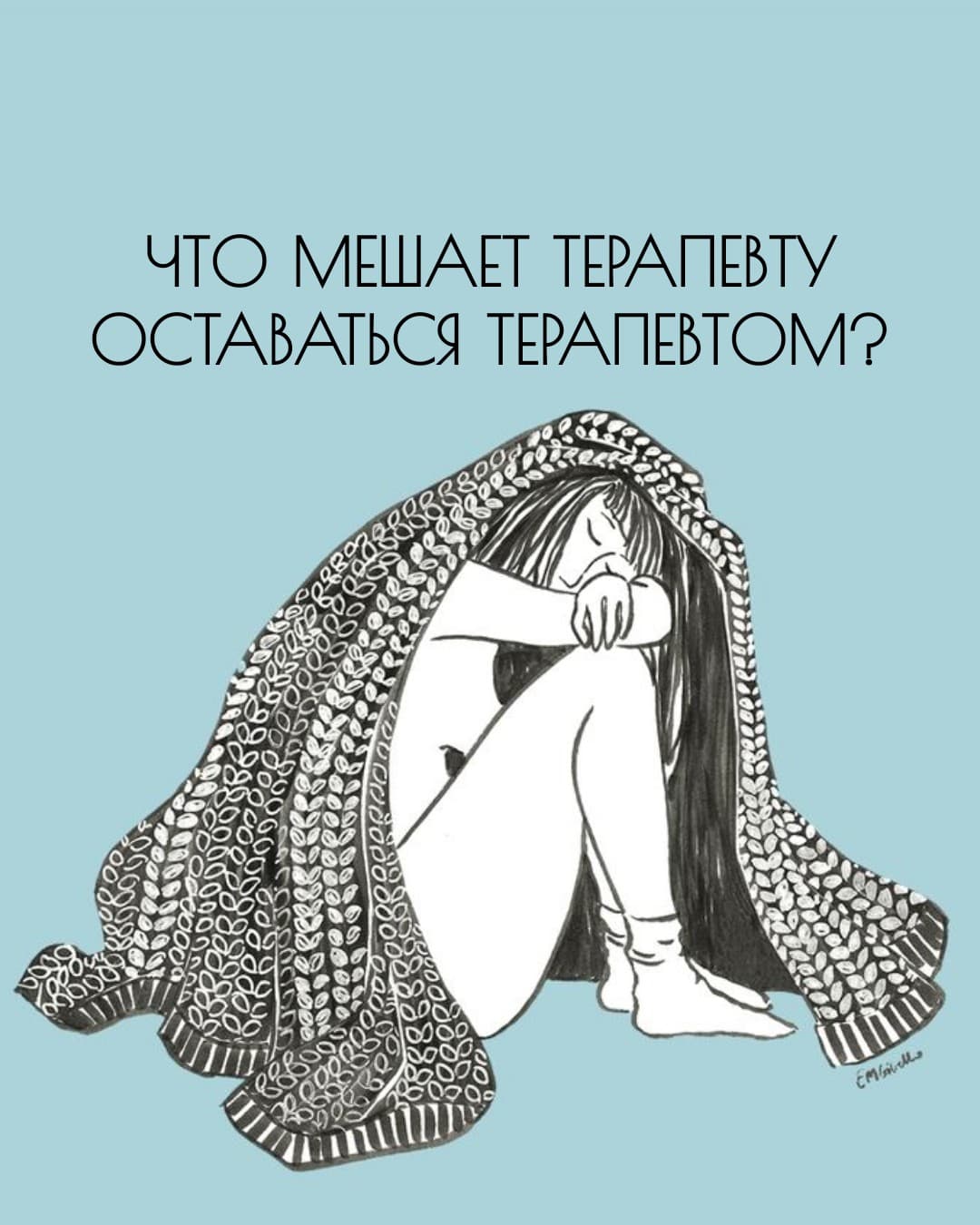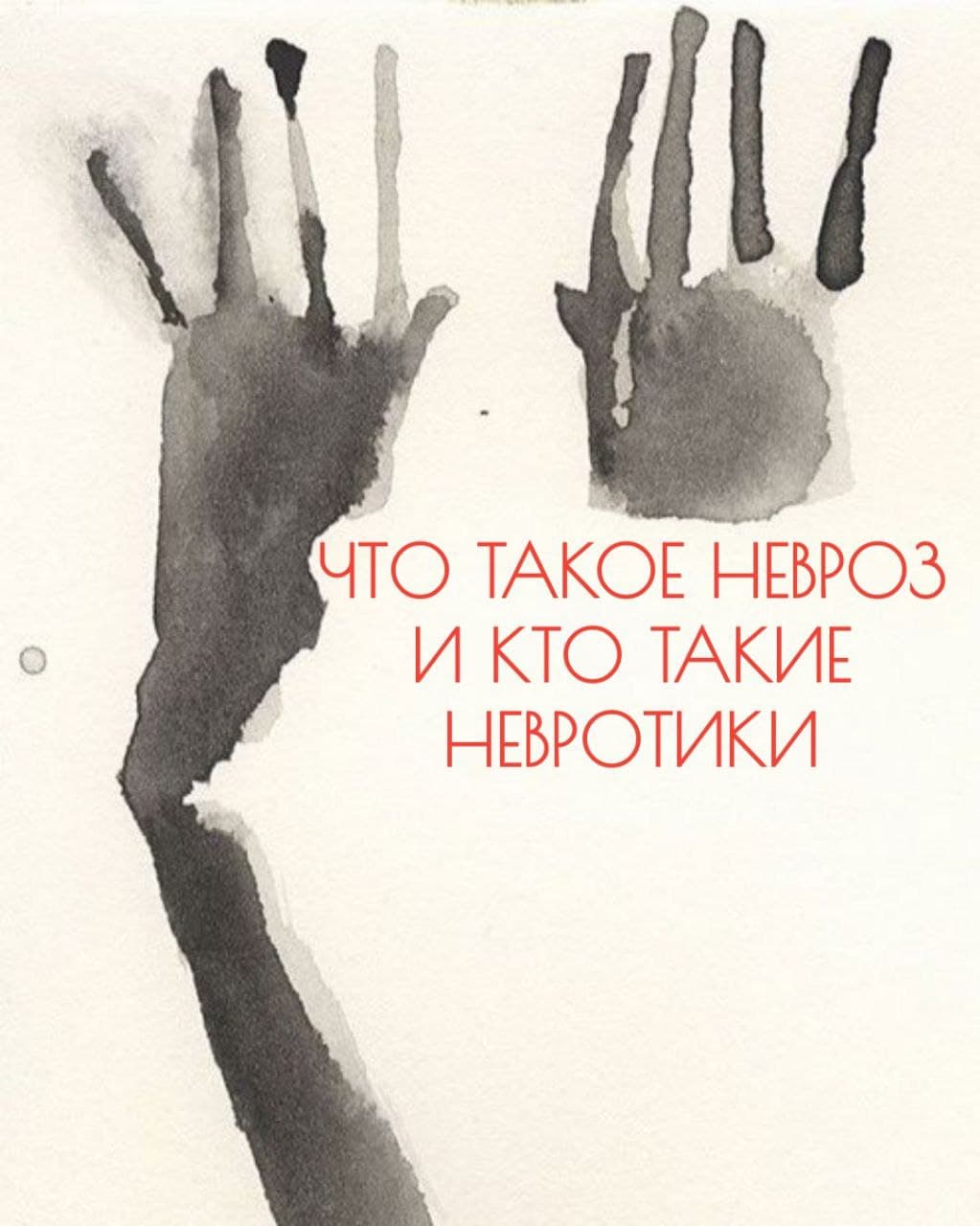
@omprograms
Uncertainty is almost inevitable and, in a way, even a familiar part of our lives. But when the level of uncertainty is high, it can affect a whole range of important aspects of our lives.

The biblical Ham, as we know, was the youngest son of Noah, and he became famous because he found his father drunk and naked in the vineyard and went and told his brothers about it. But his brothers were good, they covered their parent's nakedness without looking. From this story we can draw many different conclusions. For example, that it is impossible to criticize those who are superior. That any indication of their vices and shortcomings is a manifestation of monstrous disrespect, and should be strictly censured. Or: we should not take the dust out of the house, but cover for each other. Although such conclusions are inevitable, but this is clearly not the point - many other pious prophets and saints were famous for directly pointing out the spiritual infirmities and moral degradation of those in power.
In the modern sense, "rudeness" has become simply rudeness or paniblicized, disrespectful treatment. This common usage of the word robs it of its deep meaning and takes it away from its Old Testament roots. Noah's son was not openly rude to anyone, but as a result of his actions his father could feel insulted and unprotected. The main distinguishing feature of rudeness is not in the manner of behavior at all, but in the fact that as a result of such behavior or statement, the person at whom it is directed has a feeling of humiliation, vulnerability, shame, while the boor (just the opposite) can feel his invulnerability and even superiority. Ham's guilt was that he brought out the intimate things that no one else was concerned with. The Ham is the person on the other side of shame, the one who initiates it by his embarrassing or malicious actions. We can call the real boor those who spread shameful gossip, those who inappropriately expose hidden knowledge about others. Curiously, Ham does not condemn his father. That would be a responsible act, requiring courage and a demonstration of his own value system. Instead, he whispers quietly to his brothers. By exposing intimate details, he himself remains as if he is pure, unadulterated. This is what the secondary heroine of "Office Romance" did when she got the love letters of one of the female employees - she secretly told everyone what a shame, thus creating an atmosphere of shame and humiliation.
A benchmark demonstration of how shame is experienced is a situation in which a teenager's underwear is pulled down in a school locker room (an extremely unpleasant and, alas, recognizable experience), and the boor is the very person who does it. Thus, boorishness is the other side of shame, and the boor is the subject of this side.
It must be said that rudeness has a powerful energy, easily becoming a source of bullying and harassment, mutual suspicion. Noah and his sons were able to cope with rudeness by uniting against it: Noah's children covered his nakedness. But in life, boorishness more often provokes ridicule, mockery and teasing, social pressure. Therefore, boorishness is actively used for manipulation purposes: the boor does not take responsibility, does not confront openly, does not declare his values, opposing them to the street, but stealthily creates "public opinion". To this kind of things include parsing at the class hour of the behavior of the student, and parental stories about the shortcomings of the child, often in front of him, so that he heard and ashamed. These methods, knowingly painful, were somehow considered fruitful. It is so fixed in the philistine manipulation of each other that even some "psychological trainings" of personal growth are built on such shaming and nudging, designed to give a person an incentive to overcome their complexes. This often becomes extremely destructive to the individual.
Here's the translation into English:
It is important here to distinguish the fine line between rudeness and exposing vices. When someone is rude, they are not interested in correcting the vice; they are indifferent to the person and their future. Their interest lies only in the shame, scandalous exposure of shortcomings brought to light, or intimate details. Rudeness often attempts to counter accusers by saying: "Who are they to expose our vices? Their own face is crooked, etc." Exposing and rudeness are similar, and manipulative substitution of one for the other is common. Unfortunately, the audience targeted by both rudeness and exposure doesn't always find it easy to distinguish between them.
(For example, one deputy reacted to media reports about a judge's daughter's $2 million wedding: "They might as well check the sheets after the first night - are there any red spots! What rudeness?!" - this is a typical manipulative substitution of exposing theft with the exposure of scandalous intimate details of personal life.)
A rude person strikes at someone's weak, vulnerable spot, while a prophet, an accuser, strikes at their strong spot. They directly appeal to a person's conscience, pointing out vices and abuses of power, position, or strength, laying bare and defending their own position, their system of values. Sometimes, this includes aspects of personal life (for instance, romantic relationships covering theft and embezzlement, or certain types of intimate relations involving incest, violence, or moral neglect - akin to John the Baptist's condemnation of Herod and Salome). But the accuser seeks to halt the unacceptable, based on morality, ethics, and laws. The rude person seeks only to shame and bring general condemnation and social pressure, creating a situation of moral harassment.
But what does psychotherapy have to do with it? The point is that one of the therapist's tasks is to make the secret manifest, to expose intimate, problematic areas that a person hides even from himself, not only from others. In individual therapy, the rule of confidentiality partly protects against this. But in group therapy, in demonstration and demonstration sessions, in trainings - how can this be avoided? But even in individual sessions, the client feels naked and vulnerable, revealing his or her hidden characteristics, facing his or her own limitations. For many, this is a difficult experience.
There are many ways for a therapist to be rude to a client. And, because rudeness is not at all helpful in therapy, it is important for the therapist to pay attention to situations in which he or she might become rude. This can happen whenever the therapist provokes feelings of humiliation or shame in the client, while remaining invulnerable. It is important to note that the appearance of shame in the client is not necessarily related to the therapist's boorishness. Shame is an important experience, and the therapist needs to be able to support it and help the client deal with it. However, there is a difference between a situation where, as a result of sufficient therapist support and the client's own process, the client decides to face his or her own shame, and a situation where the client's shame arises as a result of the therapist's words or actions, perhaps at a time when the client is completely unprepared to face it. Rudeness on the part of the therapist is manifested by shaming the client or provoking feelings of humiliation. Not only is this not helpful to the client, but it can be retraumatizing.
Why is it sometimes difficult for a therapist to refrain from being rude? Perhaps it is because the alternative is the ability to face one's own vulnerability and shame. How did Ham feel when confronted with his father's nakedness? Awkwardness? His own shame? Fear that it could happen to him too? These are fantasies. But indeed, if we witness someone else's shame, we may feel embarrassment and fear of experiencing shame too. Rudeness is one way to protect ourselves from these unpleasant experiences: if I am superior to the person experiencing shame, maybe the same thing won't happen to me. If I am the one being shamed, I may be able to avoid my own humiliation. Even better, if I can convince myself of my own impunity and invulnerability by trying to be like the denouncer.
In kindergarten," O.M. recalls, "the teachers made a boy from our group strip naked and squat in front of everyone for dabbling during his afternoon nap. And then they announced a competition for silence officers. They had to identify cases of naughty behavior and report them to the teachers. There was no shortage of applicants. The duty officers had obvious superiority, they could speak louder than others, make remarks, threaten that they would have to endure shame. The duty officers themselves, as long as they retained this status, felt invulnerable.
Another sign of rudeness, also related to shame, is the violation of the boundaries of intimacy. When something happens that "reveals" the client's feelings, "brings him out into the open," it is not because he is ready to face it, ready to present himself in the presence of the therapist, but because the therapist prematurely provokes such openness. One's own intrusion into the intimate sphere of another, or exposure of that sphere without his or her obvious desire, is boorishness. Of course, the client often comes to the therapist precisely in order to discover and deal with hidden (sometimes from him/herself) experiences. And the therapist often helps to make manifest what the client finds difficult to face. This in itself is not boorish. What makes a therapist's words or actions rude is that they are untimely or inappropriate (when the client is not yet ready to face difficult experiences or is not sufficiently supported by the therapist).
A special case of rudeness (almost directly repeating the story of Noah and Ham) is the therapist's breach of confidentiality. In this case, the therapist allows someone else to interfere in the intimate sphere of the client. Only unlike Ham's brothers, in this case this third party has no tools to "cover the nakedness" of such a therapist's client. Except to stop the therapist's boorishness.
It is easy for a therapist to become a boor if he or she, through experience and knowledge, makes all the client's weaknesses visible in a casual way. This is often the basis of provocative and frustrating techniques, revealing what is difficult for the client. When we look at the work of Frank Farelli or Fritz Perls, in them we see the bringing to the surface of all the silt that has been lying at the bottom, and the smooth image that the person has been creating ceases to be so, his complexes, aggression, traumas and flaws are exposed. It instantly becomes boorishness if the specialist is proud of his or her very ability to "bring to light", because in such a case there is no sympathy or desire to help behind the accusation. Then a person will experience only shame and humiliation. It should be said that sometimes this can lead to an explosion of aggression and catharsis in a neurotic, but the risk is very high, and instead of getting angry at the boor, the person can be retraumatized with unpredictable consequences up to self-destructive practices.
It seems to us that we can identify three main signs of therapist boorishness:
Shame can have many different consequences. In your experience, there may have been instances where a deep experience of shame changed your worldview, making you a better person. Such examples abound in Dostoevsky's writings (e.g., Raskolnikov's encounter with Sonechka Marmeladova). This is an experience of purification through shame, when a person sees his shortcomings, infirmities and mistakes very clearly, and there is no need to defend himself, because no one is attacking him, but on the contrary, these shortcomings become obvious in the light of love and care, kind attitude towards him.
Such an experience occurs when a person expects to be rebuked, knowing that he or she is wrong, prepares to be confronted and scolded, but instead is met with a respectful, caring, caring attitude.
"There was an example in my life that greatly changed my worldview at that moment," V.S. recalls, "I was about 17 years old, and I was at a camp in a monastery with my former history teacher. One night a couple of friends and I got pretty drunk, which was obvious to everyone by morning. The old-school teachers who traveled with us decided to call me on the carpet in the evening and reprimand me. I was no longer a schoolboy, and I prepared to listen to them "with a dummy in my pocket". They tried to tell me about unacceptable behavior, that I should say something in my own defense - a meaningless reprimand, which I was ready for. And then the supervisor, a history teacher, said, "I've known you for a long time, and I realize that you didn't drink - you're just not the kind of person who could afford it. But you behaved in such a way that they thought that about you, and you are an example for many people! Go away, don't do that again." Such a turn was extremely unexpected and it changed my worldview in an instant. I recently heard about a similar experience in a testimonial autobiographical performance, in which a former convict told how she went on the run because of intolerability and conflicts in the brigade. When she was put in the SHIZO for this, the brigadier suddenly came to her and said: "I thought you were smarter than that." And everything - this unexpected attitude, this sudden hint of respect changed her mind, causing both intense shame and relief. And she asked to return to the same brigade from which she had fled.
In both situations there was an expectation of attack and humiliation, which suddenly turned into recognition of human dignity and respect. This is the opposite experience to boorishness, although it is also associated with shame. As much as boorishness is indifferent to the subject and focused on his or her flaw, so much of this shame, which is purifying and strengthening, stemming from a revaluation of self and self-esteem, is related to attention to the person himself or herself and the secondary importance of his or her vice or flaw. It seems that rudeness always has to do with an attempt to elevate oneself, to exalt oneself, to be "in white" by exposing, publicizing and demonstrating intimate and painful, shameful manifestations of another person. What causes a person to be treated in this way is a mixture of humiliation and shame. Psychotherapy, always concerned with intimate experience and the discovery of flaws, can situate itself somewhere on this scale: from boorishness to cleansing shame. And it seems that the respect and attention that the therapist gives to his or her client can play a key role in this.
The other scale, on one pole of which is boorishness, has on the other pole the denunciation of social ills, injustice and violation of morality. And here the difference lies in the aspiration to change the surrounding reality for the better, which is absent in boorishness, and the open declaration of one's own position, value system of coordinates - which boorishness also never does. This is the most important task that prophets and the best politicians undertook. After all, Ham's brothers, Shem and Japheth, did not ignore their father's nakedness, did not pretend that it did not exist, but went and covered it up, and this history was not forgotten, but preserved for centuries.
Gestalt therapist, trainer Olga Movchan
Gestalt therapist, trainer Vitaly Sonkin

Fill out the form below, we will answer your question shortly!

Uncertainty is almost inevitable and, in a way, even a familiar part of our lives. But when the level of uncertainty is high, it can affect a whole range of important aspects of our lives.

WHAT PREVENTS A THERAPIST FROM BEING A THERAPIST?

Alarm levels. What is anxiety and how to deal with anxiety?

What is neurosis, and who are neurotics?